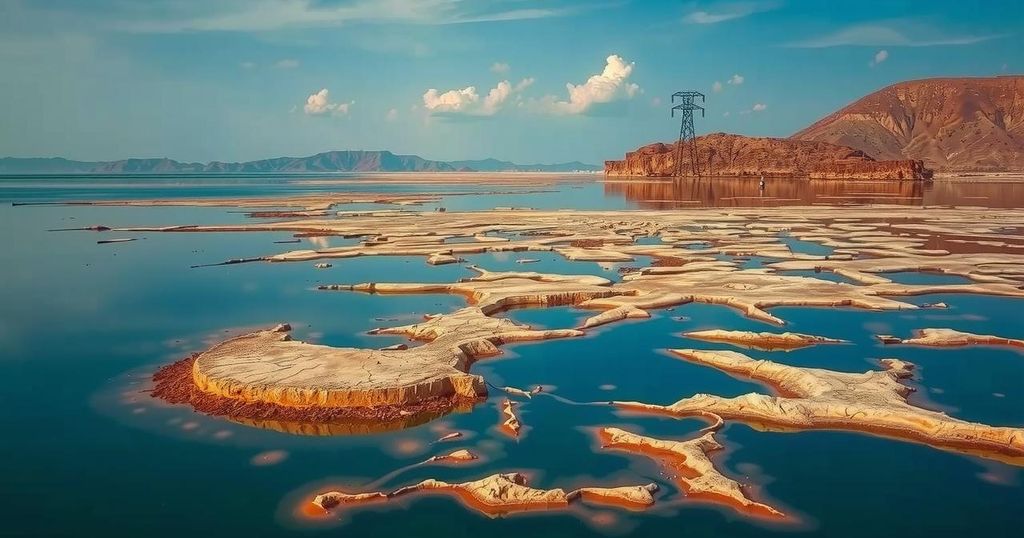The ongoing drought has brought Lake Kariba to low levels, threatening power supply for Zambia and Zimbabwe. This situation has resulted in extensive daily power outages, impacting economies and livelihoods. The urgency for alternative energy sources has been emphasized, with both countries planning new coal and solar projects. Officials are hopeful for early rains to alleviate the crisis as economic growth forecasts are revised downward.
A severe drought is critically impacting Lake Kariba, the world’s largest artificial lake, leading to dangerously low water levels that threaten the functioning of the dam responsible for much of the electricity supply in Zambia and Zimbabwe. The prolonged dry conditions, worsened by the El Niño phenomenon, have resulted in significant power shortages, with Zambian and Zimbabwean households experiencing daily outages of up to 21 and 17 hours, respectively. The diminished water levels have forced the dam’s power stations to restrict output, leaving only one of six turbines operational on the Zambian side.
Lake Kariba, established in the 1950s, is crucial for the hydropower needs of both Zambia and Zimbabwe. Its water reservoir not only supports electrical generation but also sustains agriculture and local ecosystems. The region’s weather patterns have been significantly altered by climate change, leading to increased incidence of droughts. As nations grapple with energy demands stemming from population growth and economic development, the reliance on hydropower becomes precarious during periods of insufficient rainfall.
In conclusion, the current drought affecting Lake Kariba poses a severe threat to the electricity supply in Zambia and Zimbabwe, highlighting the urgent requirement for both nations to diversify their energy production. The forecast for a normal rainy season offers some hope; however, immediate solutions must be enacted to address the current power crisis and mitigate the economic repercussions associated with prolonged outages. Strategic investments in alternative energy sources, such as coal and solar power, will be essential for future resilience.
Original Source: www.africa.com







